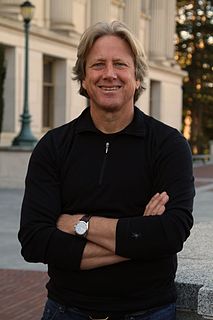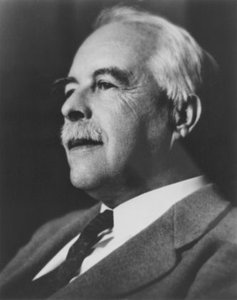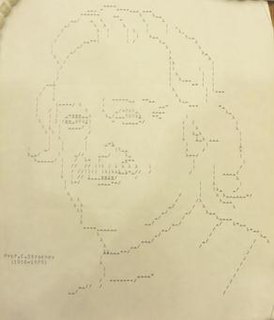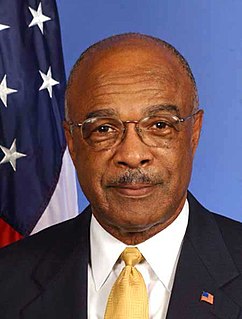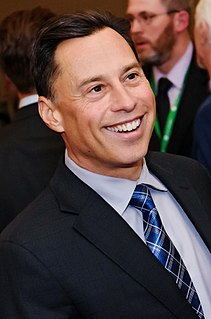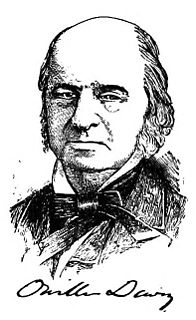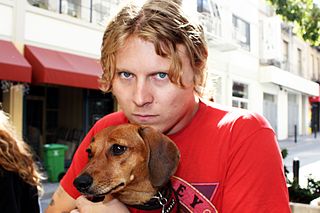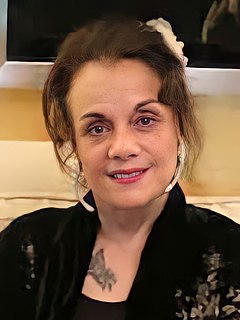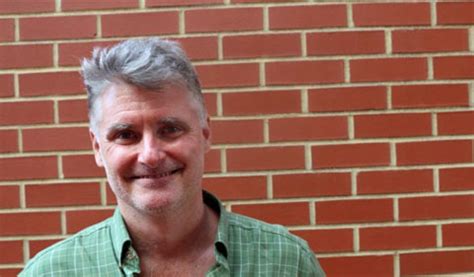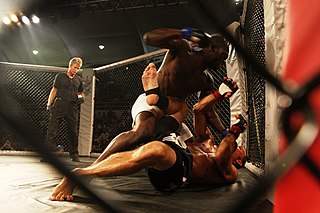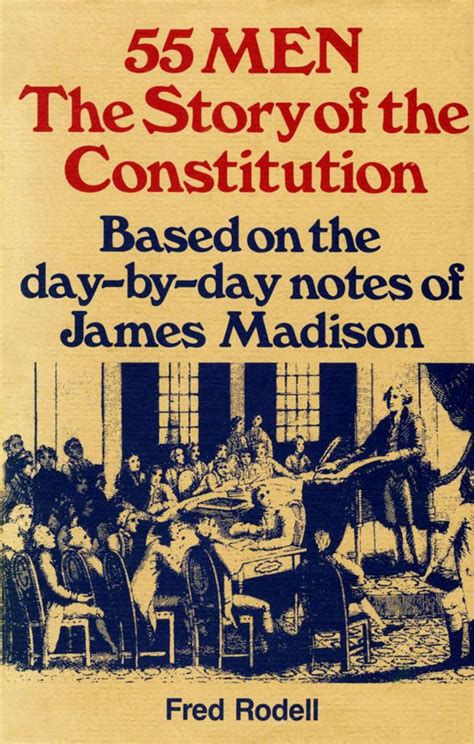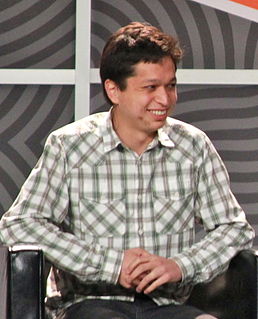Top 1200 Practical Skills Quotes & Sayings - Page 5
Explore popular Practical Skills quotes.
Last updated on April 21, 2025.
What struck me most in England was the perception that only those works which have a practical tendency awake attention and command respect, while the purely scientific, which possess far greater merit are almost unknown. And yet the latter are the proper source from which the others flow. Practice alone can never lead to the discovery of a truth or a principle. In Germany it is quite the contrary. Here in the eyes of scientific men no value, or at least but a trifling one, is placed upon the practical results. The enrichment of science is alone considered worthy attention.
The best solution would be better strategies for more rapid economic growth and getting people jobs and increases in income. You should simply be clear about matching problems and solutions. If the problem is someone can't find a job because they don't have the skills and they need some retraining, extending emergency unemployment isn't going to solve that. You need the job training programs or the skills bills that come out of the House and are sitting in the Senate.
Repentance is a realization that what God wants from you and what you want from God are not going to be achieved by doing the same old things, thinking the same old thoughts. Repentance is a decision to follow Jesus Christ and become his pilgrim in the path of peace. Repentance is the most practical of all words and the most practical of all acts. It is a feet-on-the-ground-kind-of-word. It puts a person in touch with the reality that God creates.
The power paradox is that we gain power by advancing the welfare of other people and yet when we feel powerful, it turns us into impulsive sociopaths and we lose those very skills. If you're in the military, you gain power by forging strong ties in your comrades. And then the irony is that once we feel powerful and we are taken with our own success, we ignore the skills that got us power in the first place.
The scientist is a practical man and his are practical (i.e., practically attainable) aims. He does not seek the ultimate but the proximate. He does not speak of the last analysis but rather of the next approximation. His are not those beautiful structures so delicately designed that a single flaw may cause the collapse of the whole. The scientist builds slowly and with a gross but solid kind of masonry. If dissatisfied with any of his work, even if it be near the very foundations, he can replace that part without damage to the remainder.
It has long been my personal view that the separation of practical and theoretical work is artificial and injurious. Much of the practical work done in computing, both in software and in hardware design, is unsound and clumsy because the people who do it have not any clear understanding of the fundamental design principles of their work. Most of the abstract mathematical and theoretical work is sterile because it has no point of contact with real computing.
To put it simply, we need to keep the arts in education because they instill in students the habits of mind that last a lifetime: critical analysis skills, the ability to deal with ambiguity and to solve problems, perseverance and a drive for excellence. Moreover, the creative skills children develop through the arts carry them toward new ideas, new experiences, and new challenges, not to mention personal satisfaction. This is the intrinsic value of the arts, and it cannot be overestimated.
The '60s and '70s - I grew up in the Haight-Ashbury - people around me were going to school by day and all night long having these incredibly exciting meetings, mobilizing, marching, drafting statements. It was very intoxicating. It was very energizing. We've really forgotten a lot of those skills. Or they haven't been transmitted. It's useful to the people controlling us to have those skills not be available.
We should simply accept the fact that the way machines make decisions is different, and rather look at the result. If machines are providing results that we are looking for, you would mind how much human understanding was used in the process. And more likely we should look for the way of combining human skills and machine skills. And that, I believe, is the future role of humanity, is just to make sure it will be using this immense power of brute force of calculation for our benefit.
It must be for truth's sake, and not for the sake of its usefulness to humanity, that the scientific man studies Nature. The application of science to the useful arts requires other abilities, other qualities, other tools than his; and therefore I say that the man of science who follows his studies into their practical application is false to his calling. The practical man stands ever ready to take up the work where the scientific man leaves it, and adapt it to the material wants and uses of daily life.
There is a clear connection between developing the skills and talents of young people, and our economic success as a province. Initiatives like the Make Your Pitch competition and the Ontario Social Impact Voucher help us nurture the next generation of business leaders. We will continue creating an inviting environment for our next generation of entrepreneurs, ensuring they develop the right skills needed to succeed in a globally competitive economy and build the future of Ontario.
This is the perpetual and pitiful tragedy of the practical man in practical affairs. He always begins with a flourish of contempt for what he calls theorizing and what people who can do it call thinking. He will not wait for logic-that is, in the most exact sense, he will not listen to reason. It will therefore appear to him an idle and ineffectual proceeding to say that there is a reason for his present failure. Nevertheless, it may be well to say it, and to try and make it clear even to him.
I must say what I admire most is the person who masters an area of practical experience, and can teach me something. I mean, my local midwife has taught me how to keep bees. Well, she can't understand anything I write. And I find myself liking her, may I say, more than most poets. And among my friends I find people who know all about boats or know all about certain sports, or how to cut somebody open and remove an organ. I'm fascinated by this mastery of the practical.
I do believe in the myth of San Francisco and there is a force, a magical kind of thing there. That feeling of like, I've never been to another place like it. It doesn't even feel Californian. Even how it's laid out physically, it's very strange. Like, the weather patterns don't make sense. They do scientifically, but in a practical way it doesn't make any sense. And that weirdness, it really creates some weird thing in the air. But it is you know, on a practical level, it's very expensive, and it's a very business-oriented place, too, and there's a lot of that stuff going on.
The life and soul of science is its practical application, and just as the great advances in mathematics have been made through the desire of discovering the solution of problems which were of a highly practical kind in mathematical science, so in physical science many of the greatest advances that have been made from the beginning of the world to the present time have been made in the earnest desire to turn the knowledge of the properties of matter to some purpose useful to mankind.
Education, especially business education will only give you tools. What you do with these tools is all that matters. Life and business isn’t paint by numbers. You have to think for yourself. You have to invent yourself. You have an inferred fiduciary mandate to yourself, and that means, it’s your responsibility to learn people skills, and language skills, in order to increase your chances of success. You also have to be at the right place, at the right time, with the right thing. Mostly and invariably, the real product you’re going to be selling is….you.
Democracy is extremely complex; it is extremely concrete. It's about constantly choosing, finding, developing practical options within the common good. Constantly searching for how to express in a practical way the common good, not in some grand way, some grand and absolute way, but in a very comfortable way.
Whether we're fighting climate change or going to space, everything is moved forward by computers, and we don't have enough people who can code. Teaching young people to code early on can help build skills and confidence and energize the classroom with learning-by-doing opportunities. I learned how to fly a hot air balloon when I was 30,000 feet up and my life was in the balance: you can learn skills at any age but why wait when we can teach everyone to code now!
This film [Doctor Strange] kind of takes that everyday boring reality and really bursts it wide. So we talked a lot about that. In many ways there's something very practical about this world, the Kamar-Taj. It's - You know, we all look like samurai warriors, but actually there are iPads everywhere and there's a feeling that it's a practical possibility for this modern world that the Doctor Strange universe is functioning, and that we know it and it's around the corner for all of us.
In effective, sustained citizen action, people learn the skills of public life with which to act effectively. "Commons," or the common wealth-the public goods that are objects of sustainable public action-become not only occasions for collaboration by invaluable sources of citizen education in their own right because they are the occasions for learning such skills.
We frequently hear how essential it is for someone to think "outside the box," but what actually determines one's facility for doing so? In other words, what skills make someone a creative thinker? Typically, creative thinkers can view issues from multiple perspectives, define problems in several different ways, and anticipate likely obstacles. Someone's aptitude for these skills determines how well he or she will perform as a creative thinker.
First of all, women inherently, I think, are quite capable of having lots of balls in the air. And so, like, it's all those skills you use; you analyze the problem, figure out your tools, and then go at it piece by piece.... It's like what you have to do in the morning to get your kids out the door [if you're a parent]. The skills are, I believe, the same. The patience issues are the same.
It seems to us that in intelligence there is a fundamental faculty, the alteration or the lack of which, is of the utmost importance for practical life. This faculty is judgment, otherwise called good sense, practical sense, initiative, the faculty of adapting one's self to circumstances. A person may be a moron or an imbecile if he is lacking in judgment; but with good judgment he can never be either. Indeed the rest of the intellectual faculties seem of little importance in comparison with judgment.
I have ALWAYS wanted to write - I was the seven-year old entering local library poetry contests, and I recently found my eighth-grade yearbook when we moved, and I had listed "WRITER" as my future occupation. It's always been something I've been hungry to do, but I think the more practical side of me (encouraged by the more practical sides of my parents of course) shied away from pursuing a career in creative writing, in favor of something a little "safer" like law.
Facilitative attitudes (and skills) can help a therapist gain entry into the group Freedom from a desire to control the outcome, and respect for the capacity of the group, and skills in releasing individual expression Openness to all attitudes no matter how extreme or unrealistic they may seem Acceptance of the problems experienced by the group where they are clearly defined as issues Allowance of the freedom of choices in direction, either for the group or individuals particularly in the near future
A democratic public forms when citizens gather together to deliberate and make public judgments about local and national issues that affect their lives. By associating together for public discussion, citizens learn the skills necessary for the health of a democratic public; listening persuading, arguing, compromising, and seeking common ground. When these skills are nurtured within the institutions of a democratic public, citizens educate themselves in order to make informed political decisions.
Everything I said he agreed with, which was trying, and his flute playing would make the deaf wince, but I think the real problem with Hyacinth was that he reminded me of myself. He read poetry. He flinched at loud noises. In addition to having no musical skills, he had no martial skills. He avoided any situation that might require physical effort on his part. Seeing him, I found it no wonder that my father despised me.
I'm not saying that I don't have skills. I'm saying I don't feel like I can use my skills to achieve self-esteem. I feel like it's cheating. I think that I should have self-esteem simply because I am a human being who deserves love and deserves everything just as much or just as little as everyone else.
In our childhoods we either get all the social and emotional and ethical skills we need to be well adjusted adults, or we don't. Some of us don't know how to tell someone we like them. A lot of us get depressed and get wasted. Why don't we do something that makes us feel better? Because we don't know any other way. When I didn't have enough skills I compensated with drugs and alcohol. It's like there was a hole in the wall and I put a poster over it.
The intellectual part of religion is a private affair between every man and his Maker, and in which no third party has any right to interfere. The practical part consists in our doing good to each other. But since religion has been made into a trade, the practical part has been made to consist of ceremonies performed by men called priests ... By devices of this kind true religion has been banished, and such means have been found out to extract money, even from the pockets of the poor, instead of contributing to their relief.
Solving problems is a practical skill like, let us say, swimming. We acquire any practical skill by imitation and practice. Trying to swim, you imitate what other people do with their hands and feet to keep their heads above water, and, finally, you learn to swim by practicing swimming. Trying to solve problems, you have to observe and to imitate what other people do when solving problems, and, finally, you learn to do problems by doing them.
I just remember their kindness and goodness to me, and their peacefulness and their utter simplicity. They inspired real reverence, and I think, in a way, they were certainly saints. And they were saints in that most effective and telling way: sanctified by leading ordinary lives in a completely supernatural manner, sanctified by obscurity, by usual skills, by common tasks, by routine, but skills, tasks, routine which received a supernatural form from grace within.
When you learn conflict-resolution skills in the playroom, you then practice them on the playground, and that in turn stays with you. If you have a combative sibling or a physically intimidating, older sibling, you learn a lot about how to deal with situations like that later in life. If you're an older sibling and you have a younger sibling who needs mentoring or is afraid of the dark, you develop nurturing and empathic skills that you wouldn't otherwise have.
For three decades and longer we have been developing the ideas, science, and technological wherewithal to build a sustainable society. The public knows of these things only in fragments, but not as a coherent and practical agenda indeed the only practical course available. That is our fault and we should start now to put a positive agenda before the public that includes the human and economic advantages of better technology, integrated planning, coherent purposes, and foresight.
I'm often asked, Which is more important--attitude or skill? The answer is that it's somewhat like asking which leg of a three-legged stool is most important. It is my complete conviction, based on a considerable amount of research, that if you have the right attitude, combined with the right skills, and build your attitude and your skills on a solid character base, you can enjoy long-lasting success.
It is a mistake to think of these men as visionary dreamers, playing around at Philadelphia with abstract conceptions of political theory, pulling a whole scheme of government out of the air like a rabbit out of a hat. True, many of them had read and studied enough about the science of politics to put the average statesman of today to shame. But political science was to them an extremely practical topic of discussion, dealing with the extremely practical business of running a government--not, as today, a branch of higher learning reserved for the use of graduate students.
While most of today's jobs do not require great intelligence, they do require greater frustration tolerance, personal discipline,organization, management, and interpersonal skills than were required two decades and more ago. These are precisely the skills that many of the young people who are staying in school today, as opposed to two decades ago, lack.
The government must nurture an eco-system where the economy is primed for growth; and growth promotes all-rounddevelopment. Where development is employment-generating ; and employment is enabled by skills. Where skills are synced with production; and production is benchmarked to quality. Where quality meets global standards; and meeting global standards drives prosperity. Most importantly, this prosperity is for the welfare of all. That is my concept ofeconomic good governance and all round development.
The more you learn about yourself and your family tree, your self-esteem goes up. They will learn archival skills, historical analysis and science skills. You learn all this in the most seductive way, and that is through learning about yourself. Who doesn't like talking about themselves? It doesn't seem like science or history, it's just fun.
People, to maintain their self-esteem, tend to believe they are above average on all positive qualities - height, income, intelligence, sense of humor, negotiating ability, you name it. The problem is that if we are going to really build our skills, we need to know which skills are most deficient. So, I advise people to find confidantes to tell them the truth. And then act on that knowledge to build the abilities they need to be more successful.
I really believe that the raw ingredient of any creative business is the set of experiences that the team has, the set of skills. I think a simple fact is that if you have a different set of experiences based on how you grew up or how other people perceive you, or if you have a different set of skills, that will produce a better company.
Abstract reason, formerly the servant of practical human reasons, has everywhere become its master, and denies poetry any excuse for existence.
Though philosophers like to define poetry as irrational fancy, for us it is practical, humorous, reasonable way of being ourselves. Of never acquiescing in a fraud; of never accepting the secondary-rate in poetry, painting, music, love, friends. Of safeguarding our poetic institutions against the encroachments of mechanized, insensate, inhumane, abstract rationality.



